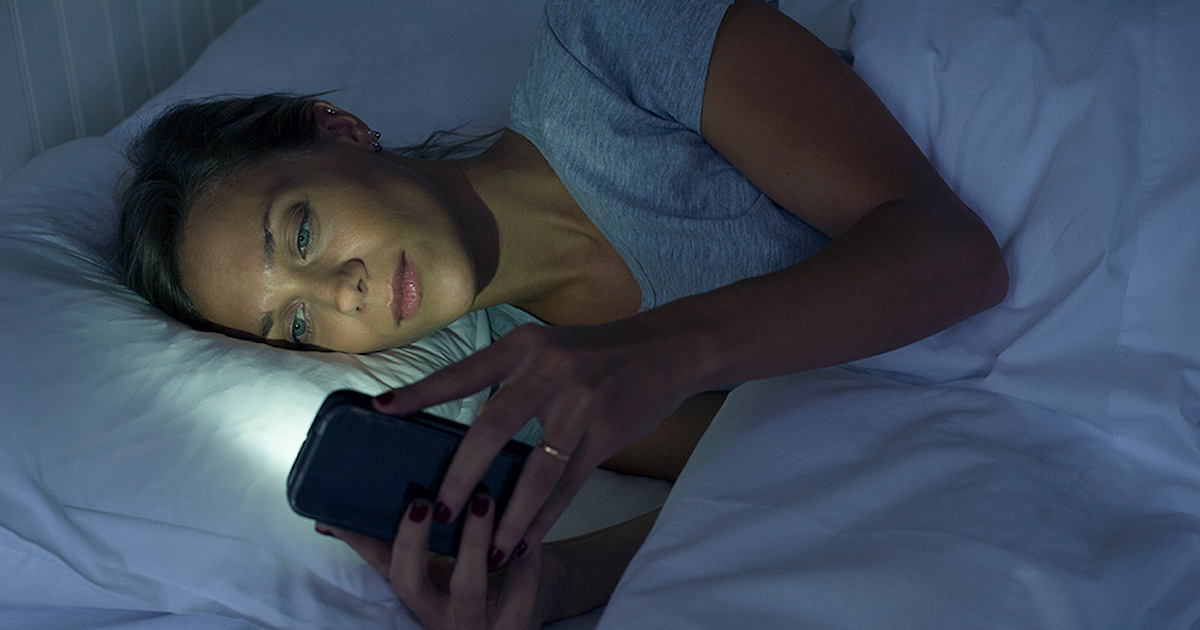Health & wellness
The Science of Sleep || How Technology is Secretly Stealing Your Rest
Explore how modern technology secretly steals your sleep. Learn the science behind sleep disruption, the effects of blue light, screen time, and tips to reclaim restful nights in the digital age.
We live in a world that never powers down. So, it’s not a surprise that sleep has quietly become one of our most endangered needs. From the moment we wake to the minute we finally close our eyes, screens follow us almost everywhere. Glowing phones. Buzzing smartwatches. Endless social feeds. Late-night Netflix/YouTube binges. Yet, behind all this convenience is a hidden cost – our ability to sleep deeply and restfully.
Sleep is not just “time off.” It’s an active, biological process that repairs the body, sharpens memory, balances emotions, and restores energy. But the more connected we become, the more disconnected we are from nature’s most essential rhythm. Modern technology, once meant to simplify life, is now silently disrupting the very rest our bodies crave.
In this article, we will explore the science of sleep, uncover how technology is secretly stealing your rest, and share simple, research-backed ways to reclaim your nights. Whether you are a student, parent, or busy professional, understanding how digital habits affect sleep could be the wake-up call your body needs.
What Really Happens When You Rest
Bedtime is much more than just a break from the day. It’s the body’s natural way of healing, refreshing, and resetting itself. When we res, our brains organize memories, our muscles repair, and our energy levels are restored for the next day. Simply put, sleep keeps us alive, alert, and balanced.
Scientists divide sleep into two main stages, and both are equally important:
NREM (Non-Rapid Eye Movement):
This is the stage of deep, peaceful sleep when the body does most of its physical repair work. Muscles grow, tissues heal, and the immune system strengthens. It’s also the time when the body stores up energy for the next day.
REM (Rapid Eye Movement):
This stage is all about the brain. During REM sleep, our minds stay active. This is when most dreaming happens. It helps with learning, memory, and emotional stability, making us more focused and balanced when we wake up.
When we don’t get enough quality night rest, the effects show up quickly:
- We lose focus. It becomes harder to think clearly, remember things, or make good decisions.
- We feel moody. Sleep deprivation can make us irritable, anxious, or even depressed.
- Our bodies suffer. Poor night rest weakens the immune system and increases the risk of health problems like heart disease, obesity, and diabetes.
- We become less productive. Without proper rest, energy drops, reaction time slows, and motivation fades.
In short, deep rest is the fuel your body can’t live without. It’s as vital as food, water, and air. Yet, it’s one of the first things modern life, especially technology, seem to be taking away from us.
How Technology Disrupts Sleep

Technology has made life easier in many ways, yes! We can connect, work, and learn with just a few taps. But when it comes to deep rest, our gadgets are not doing us any favours. From the glow of phone screens to constant notifications, technology quietly interferes with how well and how long we rest each night.
Here are the main ways technology steals our rest:
Blue Light Effect
Most of the devices we use, namely, phones, tablets, computers, and TVs give off what’s called blue light. This type of light tricks our brains into thinking it’s still daytime, even when it’s late at night.
Normally, as evening comes, the body releases a hormone called melatonin, which tells the brain it’s time to shut down. But when you stare at screens close to bedtime, blue light blocks melatonin, keeping you awake longer and making it harder to fall into deep sleep.
Research backs this up. A 2019 study published in the Journal of Pineal Research found that blue light exposure from digital devices delays the body’s natural sleep rhythm and reduces overall deep rest quality.
Too Much Screen Time
Scrolling through social media, replying to messages, or watching videos before bed may feel relaxing, but it actually does the opposite. These activities keep the brain alert and active when it should be winding down.
Studies show that people who spend long hours on screens, especially in the evening, take longer to fall asleep and often rest for fewer hours. Teenagers are among the most affected. Those who use their phones or gadgets for more than three hours daily often report poor night rest quality, tiredness, and trouble focusing during the day.
Notifications and Alerts
The constant buzz of messages, calls, and app alerts is one of the biggest enemies of peaceful night rest. Even if you don’t pick up your phone, the sound or vibration can wake you briefly or stop you from reaching the deep stages of rest your body needs.
In fact, researchers have found that just having your phone nearby, even on silent can still affect the quality of deep rest. The temptation to check for updates keeps your brain on alert, making it harder to truly switch off and relax.
Sleep Tracker Stress
Sleep-tracking apps and smartwatches are becoming more popular. They monitor how long and how well we sleep, giving detailed reports every morning. While this sounds helpful, it can also create unnecessary worry.
Some people become so focused on their data that they start to stress about getting “perfect” night rest. This condition, known as orthosomnia, can make falling asleep even harder. The more you worry about not sleeping, the less likely you are to rest well.
Simply put…
Technology is a double-edged sword. It helps us stay connected and informed, but it can also quietly rob us of good-quality sleep. The glowing screens, endless scrolling, constant pings, and even our desire to track rest all interfere with the natural rhythm our bodies depend on.
To truly recharge, we must learn when to power down, not just our devices, but also our minds.
Your Body’s Internal Clock
Have you noticed how your body naturally starts to feel sleepy at night and awake during the day? That’s because of something called your circadian rhythm – your body’s built-in 24-hour clock that tells you when it’s bedtime, eat, or feel active.
This internal clock is mainly controlled by light. When it gets dark in the evening, your brain releases a hormone called melatonin, which makes you sleepy. In the morning, daylight signals your brain to stop producing melatonin so you can wake up and feel alert.
But here’s where technology gets in the way. The light from phones, TVs, tablets, and computers, especially blue light confuses your body’s clock. It tricks your brain into thinking it’s still daytime, even when it’s late at night. As a result, melatonin levels drop, your body stays awake longer, and you end up tossing and turning instead of getting restful bedtime.
Over time, this confusion can throw off your entire deep rest pattern. You might start going to bed later, sleeping fewer hours, and waking up groggy or tired. That’s why experts warn that constant screen use before bedtime can seriously harm your natural rhythm.
In simple terms, your body knows when it’s time to shut down but technology often sends the wrong signals. Giving your internal clock a break from screens at night helps it do its job of keeping your sleep schedule steady, natural, and refreshing.
Signs Your Sleep Is Being Disrupted by Technology

Sometimes, you don’t need a sleep study to know something’s off. Your body tells you. If you’ve been feeling unusually tired, restless, or foggy-headed, your gadgets might be to blame. Technology can quietly interfere with bedtime without you even realizing it. Here are a few warning signs that your screens may be stealing your rest.
- Difficulty falling asleep despite feeling tired
- Waking up frequently during the night
- Feeling groggy or unrefreshed in the morning
- Increased reliance on caffeine to stay alert
- Difficulty focusing during the day
Strategies to Improve Sleep in the Digital Age
The good news is that you don’t have to give up technology to enjoy better night rest. Small, mindful changes in how and when you use your devices can make a big difference. By learning to balance your screen time and your rest time, you can protect your bedtime and wake up feeling more refreshed each day.
While technology may be here to stay, several strategies can mitigate its impact on sleep:
Impose a Technology Curfew
Turn off screens at least 60 minutes before bed. Instead, engage in calming activities such as reading a physical book, meditation, or gentle stretches.
Use Blue Light Filters
Most smartphones, tablets, and laptops have night mode or blue light filters. Activate these features in the evening to reduce melatonin suppression.
Create a Relaxing Bedtime Routine
Consistency helps signal your body that it is time for shut down. Consider activities like:
- Taking a warm bath
- Listening to soft music
- Journaling or practicing gratitude
Keep Devices Out of the Bedroom
Studies show that bedrooms with TVs, phones, or tablets lead to poorer sleep quality. Reserve your bedroom as a device-free sanctuary for rest.
Manage Notifications
Turn off non-essential notifications at night, or use “Do Not Disturb” modes to prevent disturbances.
Mindful Use of Sleep Trackers
While helpful, avoid obsessing over sleep metrics. Focus on overall sleep habits rather than minute-by-minute analysis.
What New Research Says About Technology and Sleep Problems
Scientists are continuing to discover just how much our devices affect the way we rest, and the findings are worrying. Recent research shows that spending too much time with screens, especially at night, doesn’t just make it harder to fall asleep, it can also lead to long-term sleep disorders.
One of the most common issues linked to late-night device use is insomnia i.e. the struggle to fall or stay asleep. Another one is Delayed Sleep Phase Syndrome (DSPS), where a person’s internal clock shifts later and later, making it difficult to sleep at a normal bedtime and wake up early for school or work.
A 2020 study published in Sleep Medicine Reviews found that teenagers who use digital devices late into the night are far more likely to suffer from insomnia, irregular sleep patterns, and even mood problems like anxiety and depression.
This isn’t just a teenage problem. Adults who constantly check emails, binge-watch shows, or scroll through social media before bed are also at risk. Over time, the brain begins to associate bedtime with stimulation instead of rest, making it harder to switch off when it’s finally time to rest.
The takeaway from this growing body of research is simple: technology can be both a friend and an enemy to our well-being. When used mindfully, it supports learning and connection. But when overused, especially at night, it can quietly rewire our sleep patterns and harm our health.
Protecting Children’s Sleep: Tips for Parents

Children and teens are especially vulnerable to technology-related sleep disruptions. Parents can help by:
- Limiting screen time in the evenings
- Encouraging device-free bedrooms
- Modeling healthy sleep habits
- Setting up tech-free family routines before bed
Finding Balance Between Technology and Sleep
Technology isn’t going anywhere. In fact, it’s becoming a bigger part of our lives every day. From smart homes to wearable devices, we’re surrounded by tools designed to make life easier. But the challenge is learning how to live with all this technology without sacrificing healthy sleep.
The good news is that new innovations are now focusing on helping people rest better, not worse. For example, there are smart lighting systems that dim automatically at night to mimic sunset, blue-light-blocking glasses that reduce eye strain, and relaxation apps that guide you through breathing or meditation exercises before bed. These solutions show that technology itself isn’t the enemy. It’s how we use it that matters.
The future of deep rest in our tech-driven world will depend on awareness and balance. That means setting healthy boundaries, knowing when to unplug, and using tech in smarter ways, not more often.
As we continue to embrace digital living, it’s important to remember that no app or gadget can replace what natural rest gives us. Sleep is still the most powerful reset button we have. And protecting it is one of the best investments we can make for our health, happiness, and productivity in the years ahead.
In Conclusion…
Taking Back Control of Your Sleep
In today’s fast-paced digital world, sleep has quietly become one of the greatest casualties of modern living. Our phones buzz long after bedtime, blue lights keep our brains alert when they should be resting, and the constant urge to stay connected chips away at the very rest our bodies crave. But the science is clear. Good sleep is not a luxury. It’s a biological necessity. It’s the foundation on which our memory, mood, focus, and overall health depend.
Truth is, technology doesn’t have to be the villain in this story. When used mindfully, it can become a powerful ally in restoring healthy sleep habits, from apps that track our sleep cycles to devices that encourage relaxation and digital balance. What matters most is awareness and intentional use.
As individuals, we can start small by setting screen curfews, dimming our lights earlier, and creating bedtime routines that send signal to the body “it’s time to rest.” As societies, we must begin to recognize the hidden cost of sleeplessness, and make choices that protect both our productivity and our peace of mind.
In the end, the key lies in remembering that our devices are tools, not masters. The more we learn to switch off the screens and tune into our bodies, the closer we get to reclaiming the deep, restorative remedy that nature designed for us. Because no matter how advanced technology becomes, nothing can replace the power of a good night’s rest.
References
- https://pmc.ncbi.nlm.nih.gov/articles/PMC9424753/
- https://www.chronobiologyinmedicine.org/m/journal/view.php?number=167
- https://www.health.harvard.edu/staying-healthy/blue-light-has-a-dark-side
- https://pmc.ncbi.nlm.nih.gov/articles/PMC4316480/
- https://www.sleepfoundation.org/bedroom-environment/blue-light
You might want to check this out…
















